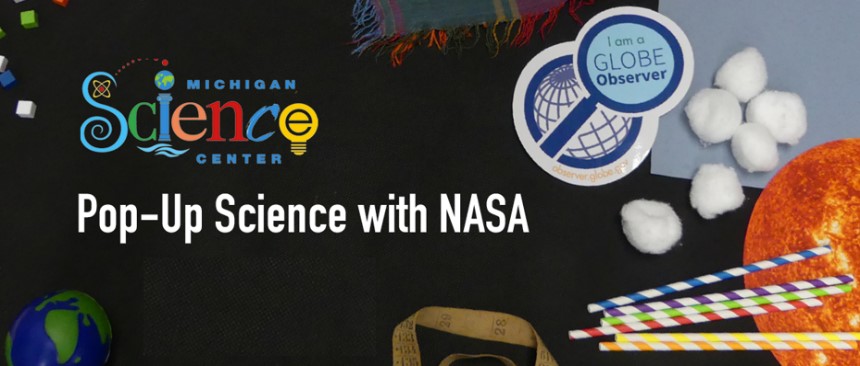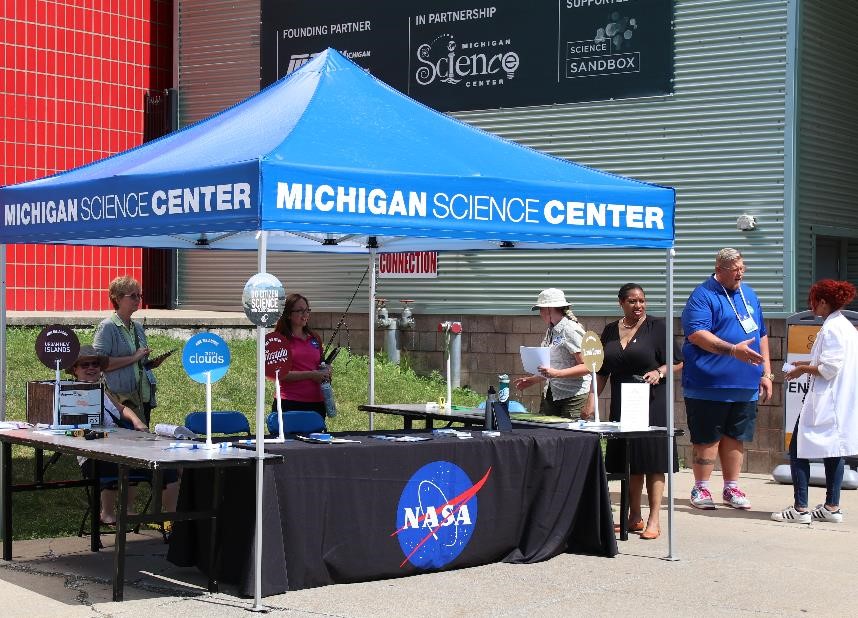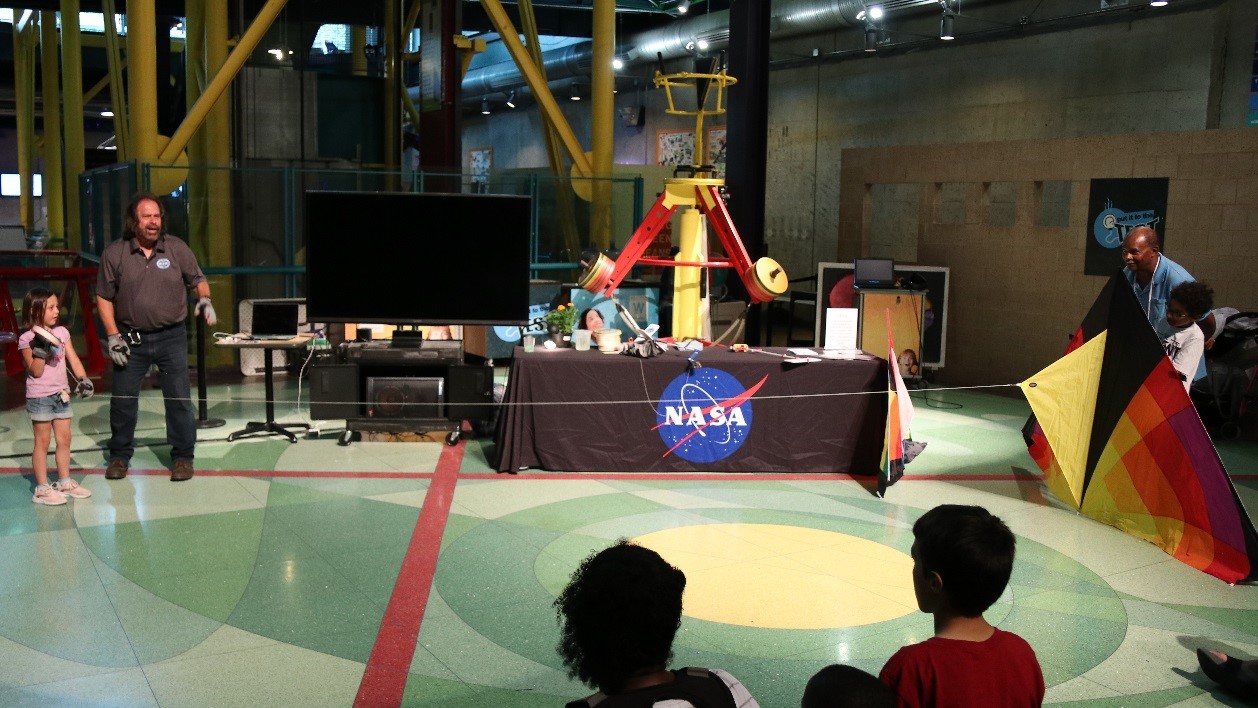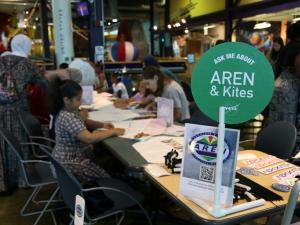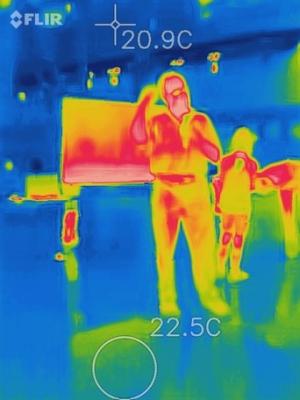In mid-July, the 23rd annual GLOBE meeting took place in Detroit just a few miles from the Michigan Science Center (MiSci). MiSci had spent months planning Apollo 11 50th Anniversary programs between July 16th-20th, from the Global Rocket Launch Challenge to the Moon Landing Celebration it’s safe to say our members and patrons were excited to visit and participate in an array of hands-on Earth and Space activities and events.
Following a NISE Net introduction, Theresa Schwerin of the Institute for Global Environmental Strategies suggested that NASA-funded educators and scientists attending the GLOBE meeting work together with MiSci on a special “pop-up science” event and share their work with the public. Naturally, MiSci was thrilled to host this group and provide yet another unique opportunity for our guests.
On Wednesday, July 17, three NASA-funded Science Activation (SciAct) project teams gave live interactive presentations to our visitors on our Science Stage. The NASA Earth Science Education Collaborative (NESEC), GLOBE Mission Earth, and Project AREN and the individuals that make up their teams each gave brief but informative 10 minute presentations that incorporated activities like exploring the temperature of surfaces on the stage or a demonstration on how to properly launch a kite.
David Bydlowski of Project Aren said, “The AREN Project, was honored to participate in the "Pop Up Science" event at the Michigan Science Center. During the event attendees had the opportunity to make a kite and fly it outside. Kites are used in the AREN Project to fly low altitude custom remote sensing platforms called AEROPODS, for agricultural and environmental research purposes.”
The presentations discussed current NASA Earth science and highlighted technology from satellites to augmented reality apps. Each presenter selected youth volunteers from the audience and some even received special free giveaways. MiSci educators were able to network with the presenters to learn more about their work and about possibilities for collaboration in the future.
“Our NESEC team was thrilled with this collaboration with MiSci, which enabled us to connect with the local Detroit community and leverage a local NISE Net partner. We wanted this to be a fun afternoon for visitors, that engaged them in doing and learning about NASA science.” Schwerin noted. “This was also a first for the GLOBE Annual Meeting and was such a great experience that we hope to continue making these local connections at future meetings.” Dr. Trena Ferrell, NASA Goddard Space Flight Center (GSFS), was master of ceremonies on the Science Stage and remarked, “One parent made a point of telling me that she loved the way we interacted with the kids and allowed them to ask questions and gave them prizes. Finding the fun in science is something that we take seriously!”
Dr. Kevin Czajkowski, University of Toledo, gave a talk, “Is My Neighborhood Making Me Hot?” about his NASA project on urban heat islands. In this infrared image he can be seen presenting in front while participants measure the temperature of materials on the table. As part of the GLOBE Mission Earth project, students are taking and submitting measurements of surface temperature to the GLOBE Program.
MiSci saw over 850 visitors that day and many were able to participate in the ‘Pop-Up’ activities. In addition to the presentations and kite building, MiSci education staff and volunteers facilitated activities from the Explore Science: Earth & Space kit at the Explainer Station and visitors were able to visit the NISE Network's Sun, Earth, Universe exhibition.
One guest shared a comment on MiSci’s Facebook page, “We attended the NASA Pop-Up and our son enjoyed the presentations they did on a variety of subjects. The experience is different every visit!”
For more information about NASA Pop-Up Science Day or the Michigan Science Center, please contact Charles Gibson at charles.gibson@mi-sci.org.

